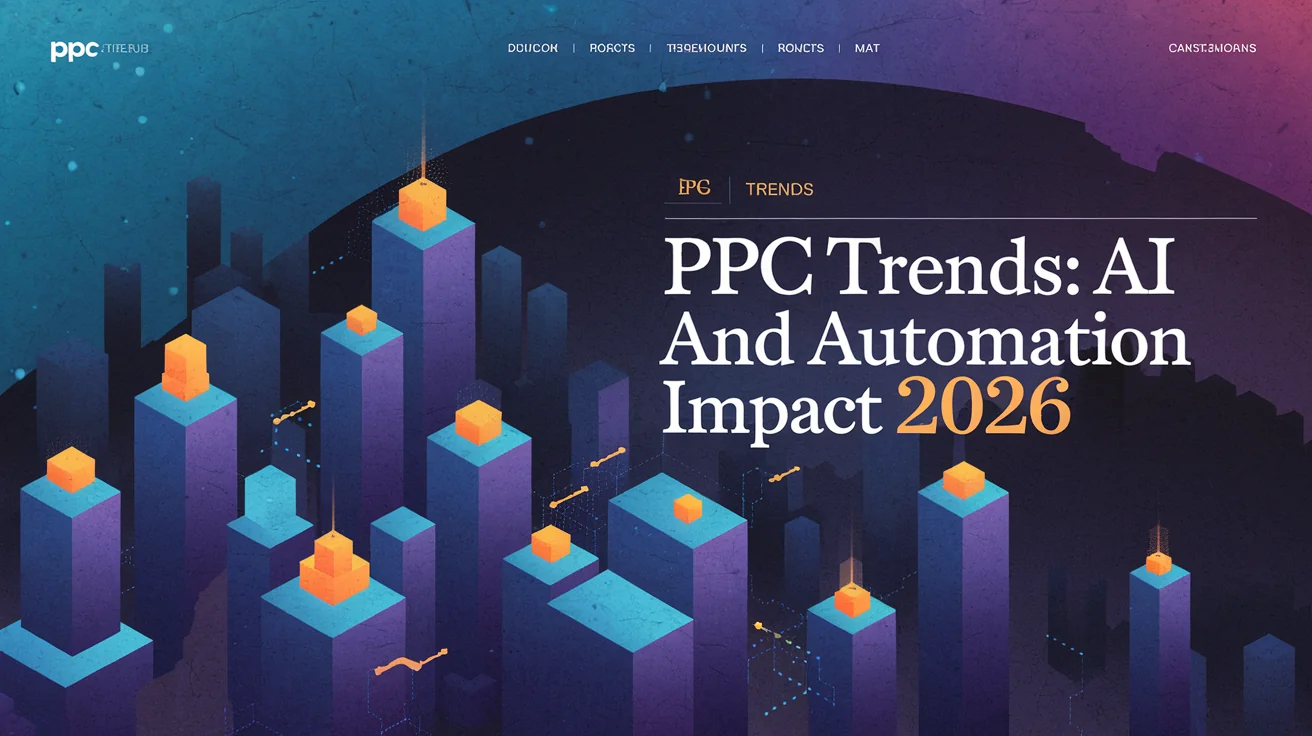PPC Trends: AI and Automation Impact 2026

As businesses increasingly turn towards AI-driven solutions in managing Pay-Per-Click (PPC) campaigns, it becomes evident that this shift is reshaping the landscape of digital advertising. AI-first campaign formats like Performance Max and Demand Gen are on the rise, often becoming the default options for marketers. This transition leads to less control and visibility over campaign specifics, and as PPC professionals navigate these changes, many are managing to leverage automation without relinquishing their strategic oversight.
The Evolution of PPC Campaign Management
PPC campaign management has drastically changed as platforms move toward automation. Campaign types are consolidating into more AI-centric formats, reducing the granular controls once readily available. Performance Max, for instance, has transformed from an experimental tool to a widely adopted model, automating tasks such as audience selection and ad copy generation. However, this evolution often leaves marketers feeling disoriented due to diminished transparency regarding performance metrics and audience insights.
Key Insights from Industry Professionals
A recent survey of PPC professionals highlighted several important trends and adaptations in current practices:
1. AI Tools Save Time Yet Require Oversight
Many industry professionals utilize AI daily for tasks like keyword research and creating ad copy variations. Despite the efficiency gained, a significant limitation lies in the inconsistency and unreliability of AI outputs. As one contributor pointed out, in regulated sectors, AI-generated outputs often necessitate careful editing due to compliance requirements. Thus, marketers integrating AI into their workflows benefit from treating AI as an assistant, complementing rather than replacing their expertise.
2. A New Definition of Control
The essence of control in PPC campaigns has evolved. Direct control over specific search terms and keyword bids has become less feasible. Instead, contributors emphasize that control now lies in setting clear business objectives and ensuring high-quality conversion data. Achieving effective optimization requires precise conversion tracking; otherwise, AI may optimize towards incorrect goals.
3. Evolving Measurement Techniques
Although cookie deprecation has been delayed in Chrome, measurement challenges persist. Practitioners now recognize that their marketing strategies must be robust even when precise attribution becomes unfeasible. Many emphasize the importance of first-party data collection, making it crucial in lead generation and validating revenue as a reliable metric in scenarios where platform-reported metrics conflict.
4. Platform-Generated Creative Assets
A surprising insight revealed that AI-generated creative assets can perform closely to those crafted by humans if prompted properly. However, this success heavily relies on the quality of prompts provided, and maintaining a consistent brand voice remains challenging. Therefore, most teams adopt a hybrid approach, allowing AI to assist in idea generation while humans oversee the final approvals of any content requiring nuanced brand communication.
Adapting to Change in the Industry
This year’s findings shift the focus from platform changes to strategic adaptability amidst reduced transparency and evolving attribution methods. Key contributors from various sectors shed light on these transformations, providing insight into effectively managing automated campaigns while retaining accountability and strategic agility. As digital marketing continues to evolve, a collaborative workflow involving both AI tools and human oversight appears pivotal in navigating the complexities of the PPC landscape.
For those managing PPC campaigns, understanding these trends is essential in creating clear strategies in a rapidly changing environment. The latest report reveals how experienced professionals tackle the same challenges, encouraging proactive rather than reactive responses to platform changes.